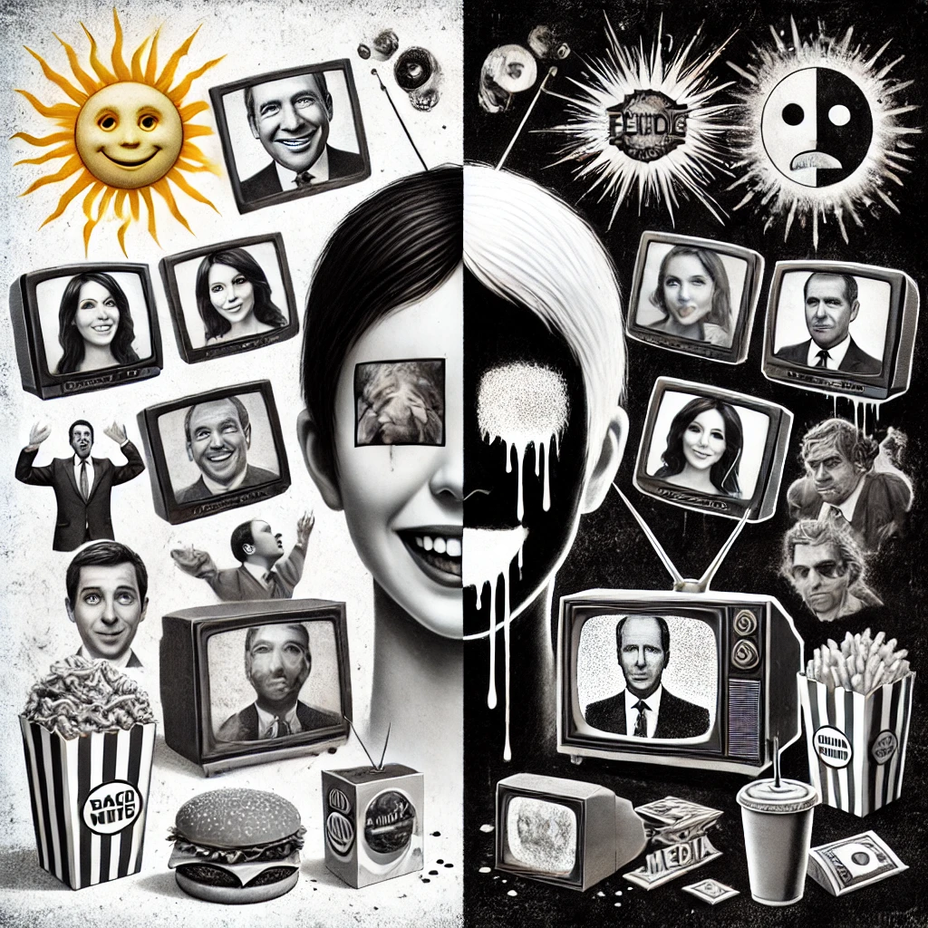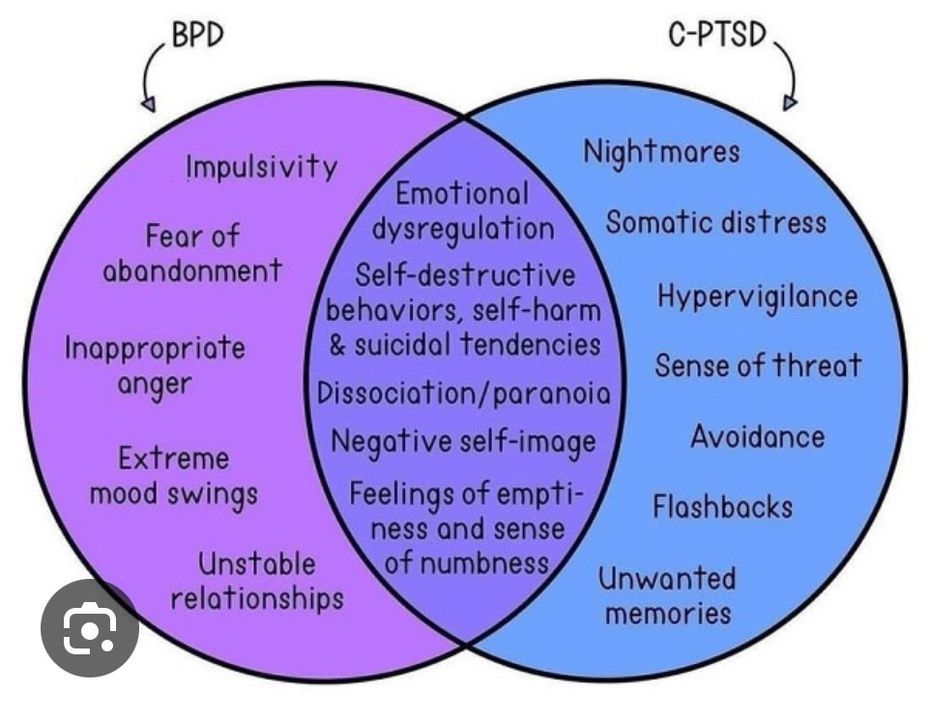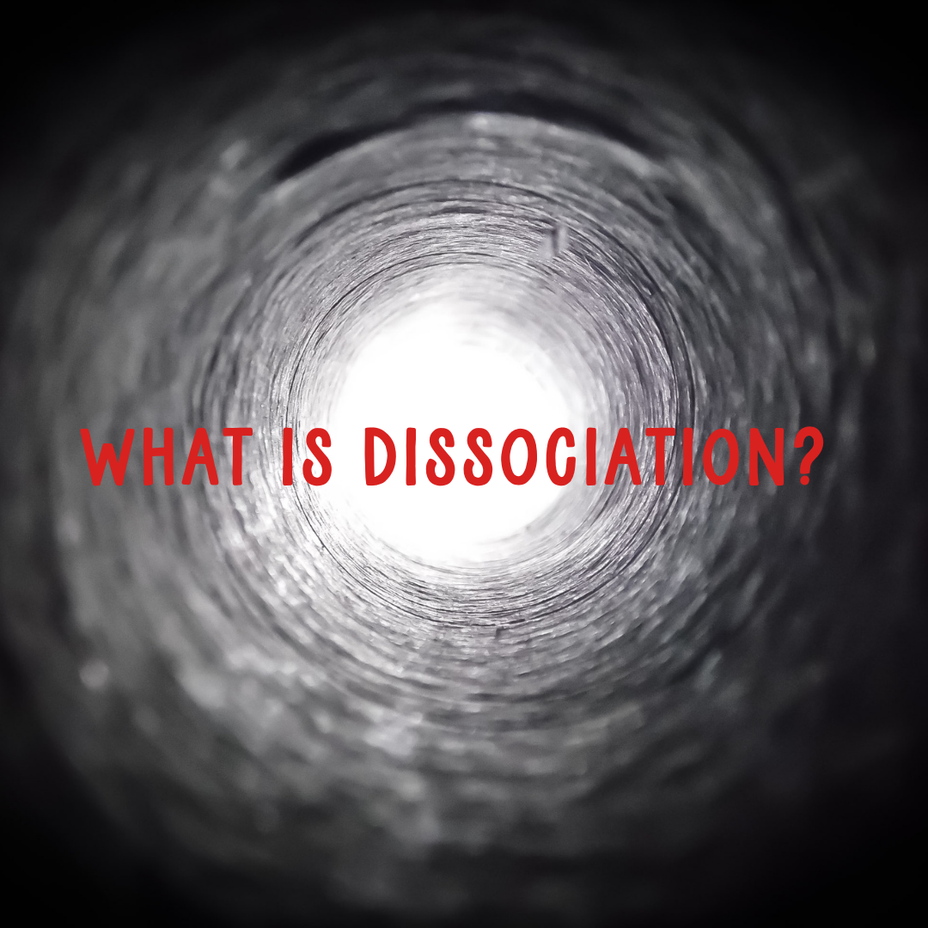What If Your Consumption Of Media Is Feeding Your Trauma Response?
I just want to start this with the reminder that there is always a grey area… no one person or thing is all good or all bad.
Us vs them, good vs evil…the western media provides multiple invitations to create splitting. Splitting is a cognitive distortion where individuals view people and situations in extreme, black-and-white terms, as either entirely good or entirely bad, with no middle ground or grey area. So if this is supposed something that only with people with BPD struggle with, why is it so rampant in our media and culture, and why are so many of us unknowingly subjecting ourselves to it on the daily?
I think of this song I used to listen to fairly often in my early 20s was called “Hate you Now” by Diddy Dirty Money, and the lyrics of the chorus are as follows:
“Don't go, don't go
Don't want you, I hate you”
This back and forth can be seen in many Katy Perry songs, “Love The Way You Lie” by Eminem and Rihanna, Amy Winehouse… obviously these “idols” are not mentally well in the first place, so why is it that they get to be influencing the masses, and why is it a seemingly never-ending barrage of split-inducing content?
Here’s 5 reasons why…
1. Because Splitting Is Dramatic AF
Splitting creates intense highs and lows — perfect for:
Cliffhangers
“Will they/won’t they” plots
Villain redemption arcs (or betrayals)
Love-turned-hate-turned-love-again romances
TV shows, movies, and songs that feed on black-and-white emotional whiplash keep audiences hooked, not healed. Because...
Drama sells. Regulation doesn’t.
2. Because Dysregulation Is Profitable
People with unhealed wounds consume more. Period.
We binge-watch.
We obsess over characters that reflect our trauma.
We relate more deeply to chaos than calm.
We replay that one emotionally abusive love song 47 times.
Splitting in media mirrors splitting in real life — and if your identity or emotions depend on the next plot twist or betrayal? You’ll keep coming back. That’s retention.
Media is built to stimulate, not stabilize.
3. Because We’ve Been Conditioned to Call It “Romance”
In Western media, “love” is often synonymous with:
Jealousy
Possession
Obsession
Abandonment followed by reconciliation
This reflects unhealed attachment wounds, and when a viewer also carries those wounds, the media acts like emotional Velcro.
“If it hurts, it must be real” is the most dangerous lie we’ve been sold.
4. Because Western Culture Itself Is Fragmented
Our culture is soaked in binaries:
Good vs. Evil
Hero vs. Villain
Success vs. Failure
Virgin vs. Vixen
Saint vs. Sinner
Splitting is culturally embedded. Media just reflects and amplifies that split — then serves it up with popcorn.
5. Because Regulated Characters Seem "Boring"
Characters who are grounded, emotionally secure, and self-aware don’t typically make for viral TikToks or binge-worthy scripts.
Why? Because regulated nervous systems don’t create spectacle — they create stability, and stability doesn’t go viral. Yet.
Splitting is rampant in Western media because Western culture itself is split — from the body, from the earth, from emotions, and from relational responsibility.
People aren’t broken for feeling pulled into it.
They’re simply living in a world that rewards dysregulation.
Over the years, I’ve come to the conclusion that when we unconsciously consume media, we are programming our mind, literally. You might think it’s just some harmless movie or just words in a song, but your subconscious mind doesn’t know that. Your subconscious mind doesn’t know the difference between fact and fiction.
So what can you do to stop this? Start becoming conscious of the content you consume. Actually LISTEN to the words, notice how the content makes you physically feel, because you deserve peace!



